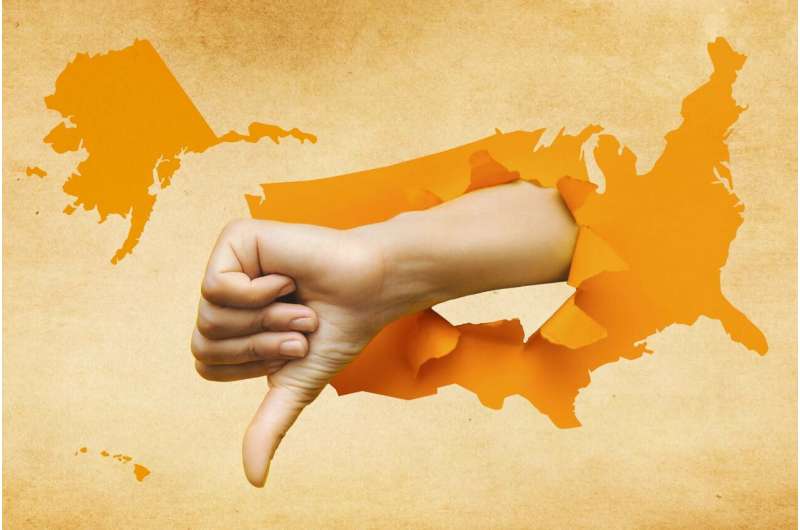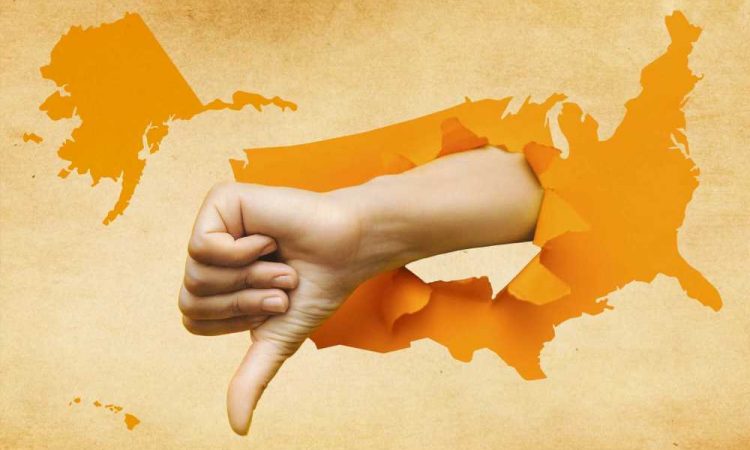
The United States is not as bad off as you think it is.
No, really. We have proof.
New research from the University of Virginia has found that when asked trend questions related to things like the life expectancy of an African American child, pessimism ruled. And it ruled across the board.
“We sampled a nationwide survey that was recruited to be representative of the U.S. population,” said study co-author Greg Mitchell, the Joseph Weintraub-Bank of America Distinguished Professor of Law.
That means a mix of males and females, races and political stripes. People were even asked to measure their news consumption.
“On political matters, approximately half of our sample (50.1%) reported more often agreeing with positions of the Democratic Party, approximately 45% reported more frequent agreement with positions of the Republican Party (44.9%) and the remainder stated that they had no consistent party preference (5%),” Mitchell and his University of Pennsylvania colleague Philip E. Tetlock write in their report, published earlier this year in the journal Clinical Psychological Science.
On 22 of 24 survey questions about the state of things in America, most people thought things had gotten worse.
Returning to the question about the life expectancy of an African American child between 2005 and 2017, respondents were unduly pessimistic and thought it had decreased by one or two years.
They were wrong.
“The racial gap in age differences in life expectancy has just shrunk remarkably,” Mitchell said. “The life expectancy of an African American child increased two years, and for a white child one year. So, in just that 12-year run, we increase the life expectancy of African American children by two years and female children by two years. That’s a tremendous gain.”
Other trend questions covering a span of about 20 years asked for an estimation of the percentage of people living in poverty, the percentage of women with a college degree and average wages.
Mitchell and Tetlock share the conclusion in their paper. “We found something on which all Americans seem to agree: Things are getting worse than they really are.”
“I think our view is that one driver of conflict and an unhappiness across groups or between groups may well be misunderstandings about the current state of things and how much progress has been made,” Mitchell said. “Even within the last few decades, on very important matters like health, education and welfare.”
More information:
Gregory Mitchell et al, Are Progressives in Denial About Progress? Yes, but So Is Almost Everyone Else, Clinical Psychological Science (2022). DOI: 10.1177/21677026221114315
Journal information:
Clinical Psychological Science
Source: Read Full Article
